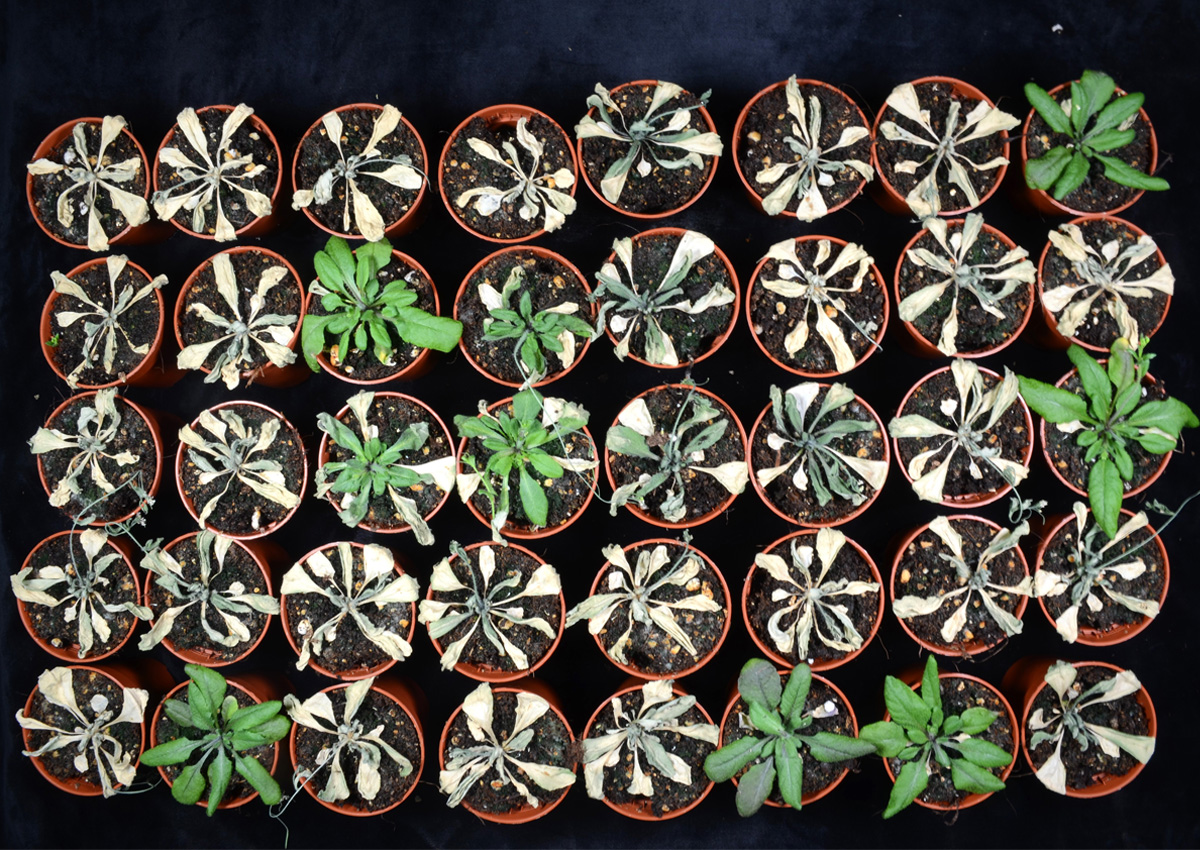
CRAG Researchers Discover Protein that Confers Drought Tolerance to Plants
June 21, 2023| |
Researchers from the Centre for Research in Agricultural Economics (CRAG) led by Núria Sánchez-Coll have discovered the exclusive location of AtMC3 protein in the plant vascular system and its role in drought tolerance in the model plant Arabidopsis thaliana.
AtMC3 is a protein of the metacaspase family. The research team discovered that increased levels of AtMC3 confer enhanced tolerance to severe water scarcity without affecting plant yield. The research team found that AtMC3 is exclusively located in the plant vascular system's phloem, which distributes the soluble organic compounds from the leaves during photosynthesis to the rest of the plant. AtMC3 is found in a particular cell type called companion cells, which metabolically support the main phloem transport cells.
In this study, researchers found that plants without AtMC3 are less sensitive to the stress hormone abscisic acid (ABA), and hence their ability to cope with drought stress is diminished. When the researchers increased the levels of AtMC3, plants showed an increased survival rate and could maintain their photosynthetic capacity in water-scarce conditions. This shows that AtMC3 alone can confer enhanced drought tolerance. More importantly, the altered levels of this protein did not cause any detrimental changes in plant growth. "This is a key finding to be able to fine-tune early drought responses at the whole plant level without affecting growth or yield in crops," says Eugenia Pitsili, first author of the study and former CRAG researcher, who is currently a postdoctoral researcher at VIB-UGent Center for Plant Systems Biology in Belgium.
For more details, read the news article in CRAG News.
| |
You might also like:
- Study Suggests Wheat Crops Threatened by Unprecedented Heat and Drought
- Review Shows Biotechnological Strategies to Develop Drought Resistant Crops
- Pocket K No. 32: Biotechnology for the Development of Drought Tolerant Crops
Biotech Updates is a weekly newsletter of ISAAA, a not-for-profit organization. It is distributed for free to over 22,000 subscribers worldwide to inform them about the key developments in biosciences, especially in biotechnology. Your support will help us in our mission to feed the world with knowledge. You can help by donating as little as $10.
-
See more articles:
-
Plant
- Experts Decode Genome of Destructive Asian Soybean Rust Fungus
- Current State and Opportunities for Biotechnology in International Trade and Technology Transfer
- CRAG Researchers Discover Protein that Confers Drought Tolerance to Plants
- ISAAA Inc. to Hold ASCA6 on September 11-15 in Indonesia
-
Animal
- Animal Biotechnology Symposium and Stakeholder Consultation
-
Food
- FAO DG Highlights Role of Agrifood Systems in Solving Biodiversity and Climate Crises
- Food Tech Startup Recreates Dairy Protein Using Plant Ingredients
-
Health
- Experts Develop Vitamin D-enriched Tomatoes
- Plant-based, Oral Insulin Regulates Blood Sugar Levels Similar to Natural Insulin
-
Environment
- New Zealand National Party Plans to End Ban on GM and Gene Editing
-
Read the latest: - Biotech Updates (February 18, 2026)
- Gene Editing Supplement (January 28, 2026)
- Gene Drive Supplement (February 22, 2023)
-
Subscribe to BU: - Share
- Tweet

